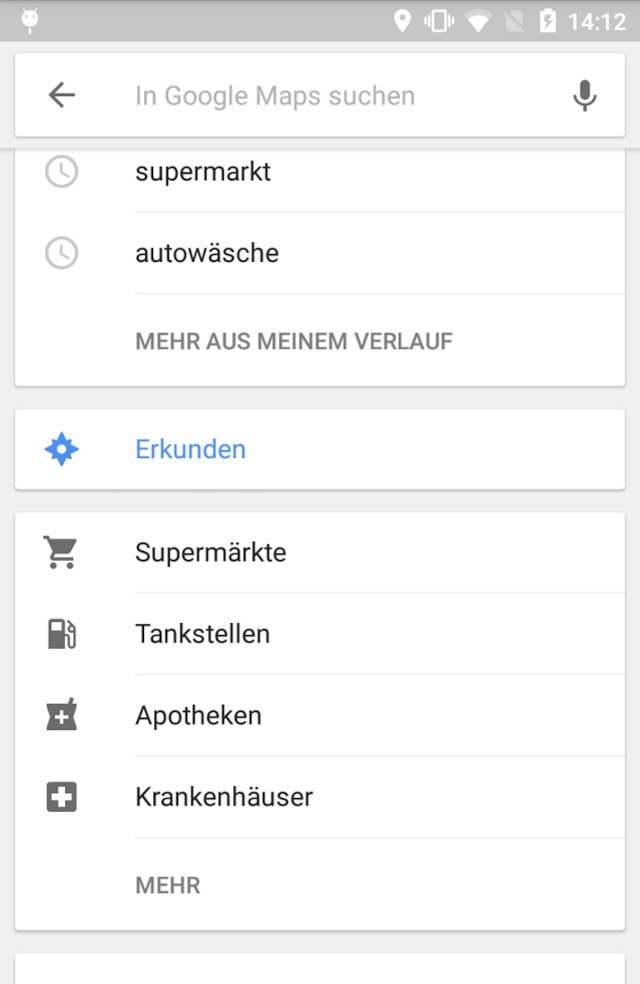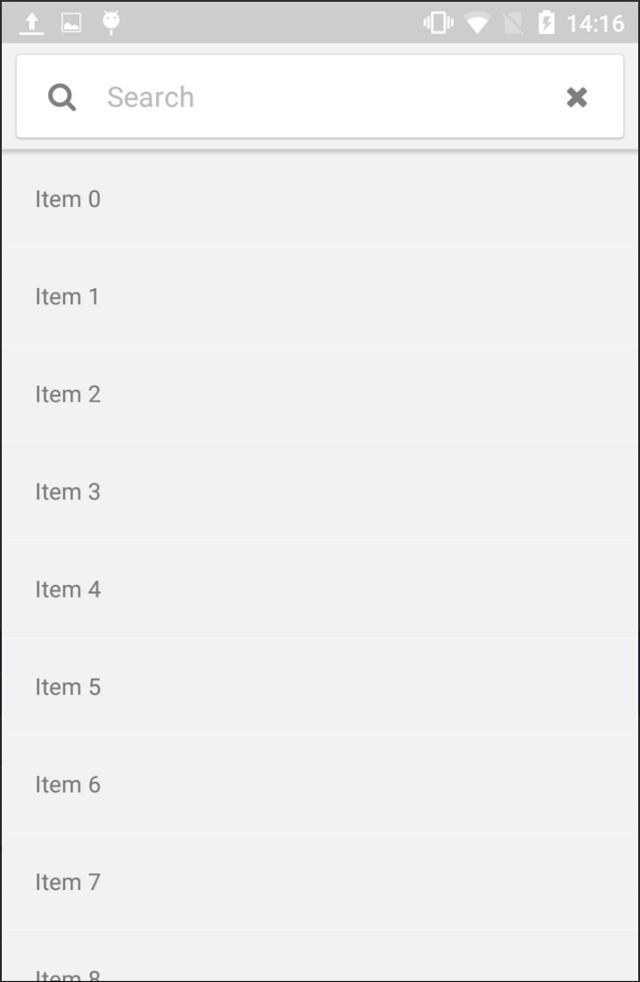I found this when page when I wanted to do something similar, but for a more complex View Hierarchy.
After some research, I was able to get the same effect using a custom behavior. This works for any view in a coordinator layout (given that there's a nested scroll element such as RecyclerView or NestedScrollView)
Note: This only works on API 21 and above as ViewCompat.setElevation does not seem to have any effect pre lollipop and AppBarLayout#setTargetElevation is deprecated
ShadowScrollBehavior.java
public class ShadowScrollBehavior extends AppBarLayout.ScrollingViewBehavior
implements View.OnLayoutChangeListener {
int totalDy = 0;
boolean isElevated;
View child;
public ShadowScrollBehavior(Context context, AttributeSet attrs) {
super(context, attrs);
}
@Override
public boolean layoutDependsOn(CoordinatorLayout parent, View child,
View dependency) {
parent.addOnLayoutChangeListener(this);
this.child = child;
return super.layoutDependsOn(parent, child, dependency);
}
@Override
public boolean onStartNestedScroll(@NonNull CoordinatorLayout coordinatorLayout,
@NonNull View child, @NonNull View directTargetChild,
@NonNull View target, int axes, int type) {
// Ensure we react to vertical scrolling
return axes == ViewCompat.SCROLL_AXIS_VERTICAL ||
super.onStartNestedScroll(coordinatorLayout, child, directTargetChild,
target, axes, type);
}
@Override
public void onNestedPreScroll(@NonNull CoordinatorLayout coordinatorLayout,
@NonNull View child, @NonNull View target,
int dx, int dy, @NonNull int[] consumed, int type) {
totalDy += dy;
if (totalDy <= 0) {
if (isElevated) {
ViewGroup parent = (ViewGroup) child.getParent();
if (parent != null) {
TransitionManager.beginDelayedTransition(parent);
ViewCompat.setElevation(child, 0);
}
}
totalDy = 0;
isElevated = false;
} else {
if (!isElevated) {
ViewGroup parent = (ViewGroup) child.getParent();
if (parent != null) {
TransitionManager.beginDelayedTransition(parent);
ViewCompat.setElevation(child, dp2px(child.getContext(), 4));
}
}
if (totalDy > target.getBottom())
totalDy = target.getBottom();
isElevated = true;
}
super.onNestedPreScroll(coordinatorLayout, child, target, dx, dy, consumed, type);
}
private float dp2px(Context context, int dp) {
Resources r = context.getResources();
float px = TypedValue.applyDimension(TypedValue.COMPLEX_UNIT_DIP, dp, r.getDisplayMetrics());
return px;
}
@Override
public void onLayoutChange(View view, int i, int i1, int i2, int i3, int i4, int i5, int i6, int i7) {
totalDy = 0;
isElevated = false;
ViewCompat.setElevation(child, 0);
}
}
my_activity_layout.xml
<android.support.design.widget.CoordinatorLayout
android:fitsSystemWindows="true"
android:layout_height="match_parent"
android:layout_width="match_parent">
<android.support.v7.widget.RecyclerView
android:id="@+id/recyclerView"
android:layout_height="match_parent"
android:layout_width="match_parent" />
<android.support.design.widget.AppBarLayout
android:id="@+id/appBarLayout"
android:layout_height="wrap_content"
android:layout_width="match_parent"
app:layout_behavior="com.myapp.ShadowScrollBehavior">
<android.support.v7.widget.Toolbar
android:id="@+id/toolbar"
android:layout_height="64dp"
android:layout_width="match_parent">
<!-- content -->
</android.support.v7.widget.Toolbar>
</android.support.design.widget.AppBarLayout>
</android.support.design.widget.CoordinatorLayout>


